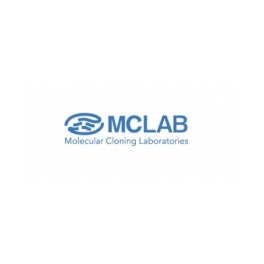 View full size
View full size
- Nucleic Acid Analysis
- Protein Analysis
- Biochemical Reagents
-
Enzymes
- Thermophilic DNA Polymerases
- Mesophilic DNA Polymerases
- Restriction Endonucleases
- Reverse Transcriptase and RNA Polymerases
- DNA/RNA Ligases
- RNases
- Proteases
- Nucleases
- Kinases
- Phosphatases and Sulfurylases
- DNA Repair Proteins
- Single-Stranded DNA Binding Proteins
- Chaperon Proteins and Disulfide Bond Isomerase
- Others
- Gene editing
- Molecular cloning
- Clinical diagnostics
- Human Identification STR kits
- Laboratory instruments
- Software
- A&A Biotechnology
- AdvancedSeq
- BioDynami
- Plant Cell Technology
News
-
RANK 2026
Visit us at the jubilee 20th edition of the RANK 2026 professional conference, which will take place on March 18–19 in Pardubice at the ABC Club. The conference is organized by the Czech Society of Cl...
Read more -
XXXV. Izakovičov memoriál 2025
We are pleased to announce our participation in the prestigious XXXV. Izakovič Memorial 2025, which will take place on October 8–10, 2025 at the Grandhotel Praha, Tatranská Lomnica. The Izakovič Memo...
Read more -
1st Czechoslovak Congress of Medical Genetics 2025
In the spring, we will participate in the 1st Czechoslovak Congress of Medical Genetics, which will take place from April 2–4, 2025, at the Cultural and Congress Center Elektra in the spa town of Luha...
Read more
 View full size
View full size
Description:
QuantumScript™ HD Reverse Transcriptase is an engineered version with increased sensitivity, improved specificity and maximum thermostability. QuantumScript™ HD Reverse Transcriptase has been engineered to have longer half life at 50°C, which enables its ability to process longer RNA with more complexed secondary structures. Enhanced thermostability of this enzyme is obtained through re-engineered RNA-based DNA Polymerase domain and the fusion of a novel RNA-interacting surface domain at the RNase H domain site. The enzyme is purified to homogeneity to ensure high thermostability, specificity, fidelity, yield, and more full length cDNA synthesis that the premium reverse transcriptase provides. The optimal fist-strand cDNA synthesis temperature for this enzyme is 50°C, and it has a broad working temperature range from 37° C to 55° C, with cDNA product size from 100 bp to 12 Kb.
Catalog No.
SSIII-100, SSIII-200 and SSIII-300
Source
E.coli
Concentration
200 u/μl
Storage Buffer
20 mM Tris-HCl (pH 7.5), 1 mM DTT, 0.05% (v/v)Triton X-100, 0.1 mM EDTA, 0.1 M NaCl and 50% (v/v) glycerol.
Reaction Buffer (5x)
250 mM Tris-HCl (pH 8.3), 375 mM KCl, 15 mM MgCl2, and 50 mM DTT
Unit Definition
One unit of the enzyme incorporates 1 nmole of dTTP into acid-precipitable material in 10 minutes at 37˚C using poly (A):oligo (dT)25 as template-primer.
Quality Control
This enzyme has passed the quality control assays: SDS-PAGE analysis for purity, functional absence of endonuclease activities, functional absence of exonuclease activities, functional absence of protease activity.
Storage and Handling: -20° C
Protocol
First-Strand cDNA Synthesis
Materials to Be Supplied by the User
- RNAse Inhibitor (Cat.# RNIN-100, RNIN-200, RNIN-300)
- dNTP, 10mM (Cat.# dNTP-10M, dNTP-25M)
- Nuclease-Free Water
The following procedure uses 10 pg to 5 µg of total RNA or 10 pg to 500 ng of mRNA.
- In a sterile RNase-free microcentrifuge tube, add primers (200-500ng of oligo(dT)12-18, 50-250ng of random primers or 2 pmol of specific primers). Heat the tube to 70° C for 5 minutes and incubate on ice for 1 min to denature any possible secondary structures within the template. Spin briefly to collect the solution at the bottom of the tube.
- Add the following components to the annealed primer/template in the order shown.
Note: Do not alter the ratio of primer to mRNA.
5 µl 5X Reaction Buffer; 5 µl of 10mM dNTP mixture (10mM each dATP, dGTP, dCTP and dTTP)
25 units RNAse inhibitor
0.5 µl QuantumScript Reverse Transcriptase (200 u/μl)
Add nuclease-free water to the final volume of 25µl - Mix gently. For random primers, incubate tube at 25°C for 5 min. Perform first-strand synthesis at 55°C for 30-60 min. Reaction temperature may be optimized between 50°C-60°C for difficult template with high secondary structure.
- Inactivate the enzyme by incubation at 70°C for 15 min.
- When perform PCR amplification after step 4, removal of RNA is highly recommended prior to the PCR amplification to ensure the yield of PCR product. Addition of 2 units of RNase H (Cat. # RNHE-100, RNHE-200, RNHE-300) and 20 min incubation at 37°C is recommended for the removal of RNA. Standard protocols for second-strand synthesis may be found in reference 2.
Note: The 5X Reaction Buffer is compatible with enzymes used in a number of downstream applications. Typically there is no need for phenol extractions or ethanol precipitations using this protocol before any PCR amplification.
Cart
Payment gate



